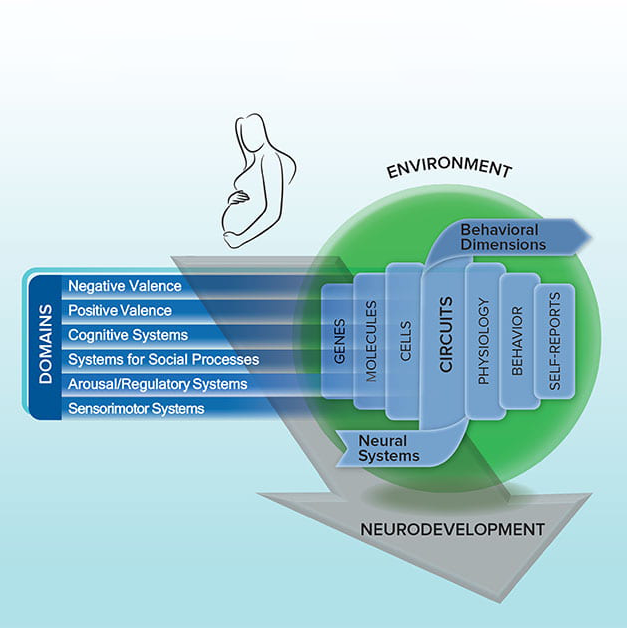These problems, and others, suggest that in order to understand both the development and treatment of mental disorders, the field needs a comprehensive picture of typical and atypical brain and behavioral development across the lifespan. It is essential to find a way to increase knowledge concerning the biological, physiological, and behavioral components and mechanisms through which multiple and interacting mental-health risk and protective factors operate – a research framework that does not rely on disorder-based categories.
The RDoC project, launched in 2009, was the response to the growing awareness of these issues. The development of the RDoC matrix was the collaborative effort of over 200 leading scientists who worked together to articulate and define the knowledge for each of the domains and constructs in the matrix. Since its inception, RDoC has grown into a significant initiative for NIMH.” (2) [About RDoc at NIH site]
